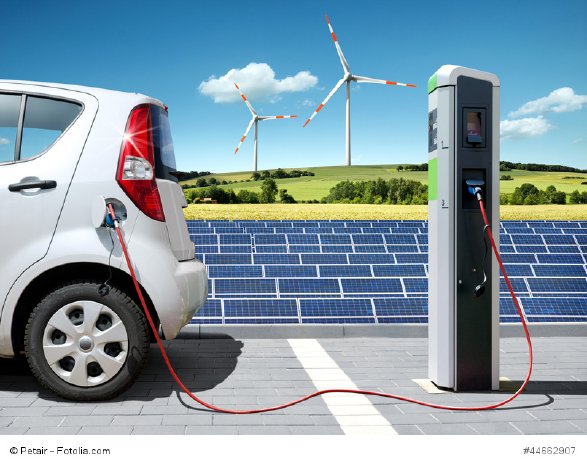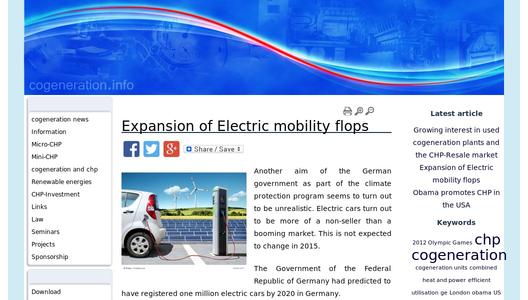The Government of the Federal Republic of Germany had predicted to have registered one million electric cars by 2020 in Germany.
The reality, however, looks different. According to the latest statistics from the German Federal Motor Vehicle Office a total of 3.04 million new cars were registered in 2014. The proportions of gasoline (50.5%) and diesel (47.8%) cars were almost identical. The proportion of new vehicles with alternative drive systems increased from 1.6 to 1.7 percent, including 27,435 hybrid and 8,522 electric cars.
Compared to 2013, when 6,051 vehicles were registered with electric drive, this does indeed represent an increase of around 40%. Given the many new electric models on offer last year and a total amount of less than 3 parts per thousand, the numbers remained well below expectations.
The increase in cars with hybrid drive compared to 2013 was significantly smaller. The increase in the number of newly registered hybrid vehicles was a mere 4.1 percent - or about 1,100 vehicles.
The target of the German government seems more than questionable in light of around 20,000 registered electric cars currently existing. This year, experts expect additional difficulties in marketing of electric drive systems due to the sharp fall in fuel prices.
At least it will become easier to charge electric cars in the future. Per "Charging Stations Regulation" the German Federal Government wants to define the specifications for the operation of charging stations,. With the Regulation the government hopes to speed up the development of charging facilities with requirements and legal clarity. Whether a strong expansion in the charging stations can allow this sector to be self-sustaining and boost an otherwise low significance in electric mobility, is doubtful (http://www.cogeneration.info/...).


